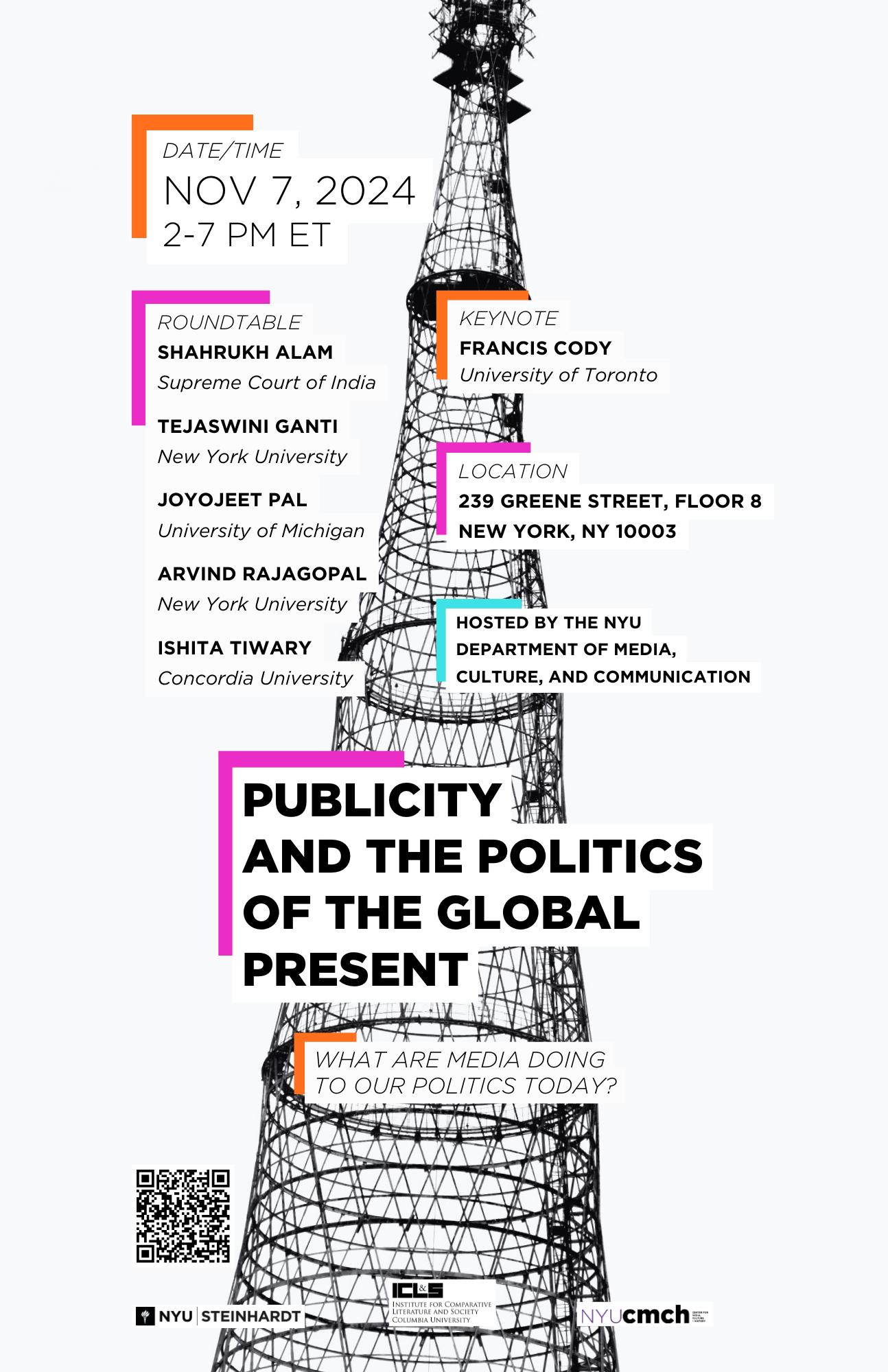
8th Floor Commons
239 Greene Street, New York, NY 10003
Institute for Comparative Literature & Society, and the NYU Center for Media, Culture, and History
What are media doing to our politics today?
Who is and who ought to be the subject of publicity is itself anything but uncontested. Today we witness the widespread fragmentation of shared understandings, the expansion of surveillance and the weaponization of publicity for private ends. In social formations that are being reconstituted as emergent societies of metadata, what theoretical and political pathways can we craft for attempts at popular sovereignty? What strategies of mediation and dismediation predominate, and how are these being countered?
SCHEDULE
2:00 – 4:30 PM | Roundtable with participants
5:00 – 7:00 PM | Keynote delivered by Francis Cody
PARTICIPANTS
Shahrukh Alam is interested in constitutionality and in criminal law and its intersections with political power, identity and class. She practices law at the Supreme Court of India.
Francis Cody is an Associate Professor in the the Department of Anthropology and the Asian Institute at the University of Toronto. His research focuses on language and politics in southern India. His most recent book is The News Event: Popular Sovereignty in the Age of Deep Mediatization (University of Chicago Press, 2023)
Tejaswini Ganti is Associate Professor of Anthropology and core faculty in the Program in Culture & Media at New York University. She is the author of Producing Bollywood: Inside the Contemporary Hindi Film Industry (Duke U.P. 2012), Bollywood: A Guidebook to Popular Hindi Cinema (Routledge 2004; 2nd edition 2013). Her current book, Thinking in English, Speaking in Hindi: Translation, Creativity, and Indian Media worlds, is under contract with Duke University Press.
Joyojeet Pal is an Associate Professor in the School of Information at the University of Michigan. He studies the role of technology in democracy and labor. He specializes in politicians’ use of social media, and in misinformation, particularly in India. Previously he was a Senior Principal Researcher at Microsoft Research India, where he was part of the Technology for Emerging Markets group.
Arvind Rajagopal is Professor of Media Studies at NYU and is an affiliated faculty in the Departments of Sociology and Social and Cultural Analysis. His interests are in comparative media, global genealogies of media theory, and the relationship between mediatic form and the postcolonial state. His work includes Media and the Global Cold War(with Rossen Djagalov, under review), Media and Utopia (with Anupama Rao, Routledge, 2017), The Indian Public Sphere (Oxford, 2009), and Politics After Television (Cambridge, 2001)
Ishita Tiwary is the Canada Research Chair, Media and Migration, Cinema at Concordia University. Her first book Video Culture in India: The Analog Era (Oxford University Press, 2024) narrates the history of video technology in India since its introduction in the 1980s, locating the moment within the country’s socio-political context.







